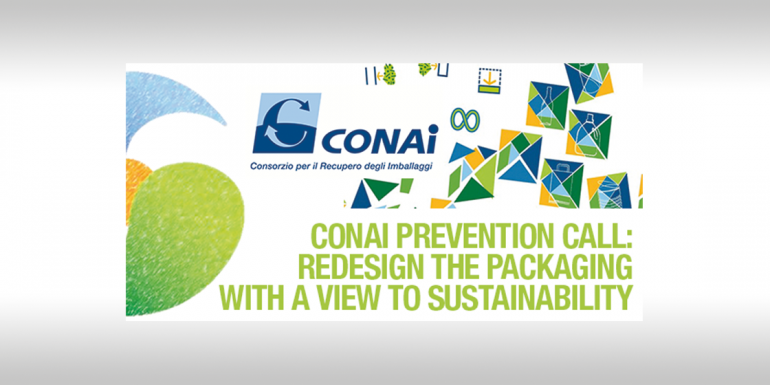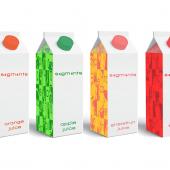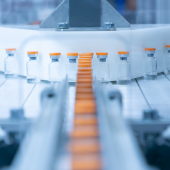Conai Prevention Call: trends of a virtuous development

An award to manufacturers and users who rethink packaging with a view to sustainability: since 2014 the Conai Prevention Call provides a prize pool to incentivate the research and development efforts of the consortium companies, which meet the challenges of the circular economy.
Promoted by CONAI under the patronage of the Ministry of the Environment, the Prevention Call has over time proven to be an effective tool for guiding the national packaging industry towards a responsible development approach. This is shown by a comparative analysis conducted on the data collected by the Consortium between 2014, the year in which the Call was launched, and the latest edition of 2018.
The survey highlights recurring elements and positive developments that denote the progressive affirmation of a “culture of sustainability” in the packaging production sector.
Firstly, it appears clearly that the cases of eco-innovation on packaging, admitted in the 5 editions of the Prevention Call, have achieved an average reduction of 24%, considering the three environmental indicators investigated: greenhouse gas emissions, consumption of water and energy resources (figure 1).

Furthermore, by comparing the composition of the candidacies presented and admitted over several years, it emerges that the initial gap that saw a greater participation in the Call of large companies compared to SMEs, has progressively been filled up and now the opposite is the case. In fact, if in 2014 there was a prevalence of the former (33% of SMEs Vs 67% LCs), in 2018 the proportion was reversed (56% of SMEs Vs 44% of LCs).
This trend would seem to confirm the success of the many initiatives promoted by Conai - of which the Call is certainly among the most incisive - in spreading a proactive sensitivity towards sustainability, penetrating the backbone of the national production sector, mainly composed of small and medium enterprises.
Despite their small size, the latter have demonstrated in practice an uncommon reactivity in finding appropriate solutions to the reduction of the environmental impact of packaging and a propensity for innovation able to compete with larger and more structured companies (figure 2).

As regards the type of packaging involved, in 2018 the same proportion already registered in 2014 was confirmed, which sees primary packaging affected by the eco design to a slightly greater extent than secondary and tertiary redesigns (53% Vs 47%) .
The average number of the so-called Conai prevention levers - which we remind people - are reuse, saving of raw material, use of recycled and recovered material, facilitation of recycling activities, optimization of logistics, simplification of the packaging system, optimization of production processes, activated for each case, have undergone significant changes over time.
If one considers their role in the sustainable rethinking of the packaging in the competition, it emerges that on average, for each case, over 60% of extra levers have been activated, to suggest how the strategies for improving sustainability are becoming more and more complex.
In time aboveall optimization of logistics has been seen to gain in importance, along with the simplification of the packaging system, the facilitation of recycling activities and optimization of production processes (figure 3).

Projects, prizes and winners of 2018
The latest edition of the Conai Prevention Call took into consideration the solutions put on the market in the two-year period 2016-2017, covering 161 applications (+ 10% compared to last year) presented by 111 companies.
The 103 cases admitted achieved an effective reduction of the environmental impact of packaging, quantifiable in containing 25% of carbon dioxide emissions into the atmosphere, a reduction in energy consumption of 23%, and a saving of 26% in water.
The solutions entered covered a wide range of product segments: solid and liquid food (34% and 14%), personal care (8%), detergency (7%), industrial packaging and other categories (37%) (figure 4)

For the 38 projects considered most deserving (representing the six supply chains of packaging materials, ie steel, aluminum, paper, wood, plastic and glass), Conai has made available a total prize money of 400,000 euros, of which 70,000 reserved for special prizes (€ 60,000 for the most virtuous cases in each supply chain and € 10,000 for the most significant case from a technical-design point of view).
The applications were analysed through the Conai “Eco Tool”, a tool that allows the calculation, thanks to a simplified LCA analysis, the effects of prevention actions implemented by companies on packaging through a comparison before and after in terms of energy saving, water saving and CO2 emissions reduction.
Both the Eco Tool Conai instrument and the procedures for admitting the awarded cases were corroborated by a third-party certification body (DNV-GL).

Special award for the most deserving case from a technical-planning point of view: Davines Spa
Special prize for steel packaging: Whitford Srl
Special prize for aluminium packaging: Zenith Alluminio Srl
Special prize for glass packaging: Olearia F.Lli De Cecco di Filippo Fara San Martino Srl
Special prize for paper packaging: Gias Srl
Special prize for wood packaging: Ivar Spa
Special prize for plastic packaging: Polo Plast Srl
Special award for the most deserving case from a technical-planning point of view
Davines Spa - Alchemic
Single pack of 280 ml shampoo
Target: Davines SpA, a manufacturer of professional cosmetic products, has chosen to use totally recycled PET for the primary packaging of its Alchemic shampoo. In order to improve many aspects of the packaging system, it has also redesigned the secondary packaging, simplifying it by eliminating the honeycombs in corrugated cardboard, and reducing the overall weight. The new design of the packaging also favored an optimization of the logistics flow at the same load.
Results: the interventions adopted on the packaging system both in terms of lightening of the components and improvement of the logistics in output contribute to improving the environmental performance from the point of view of the emissions of greenhouse gases and the consumption of energy and water resources.
Prevention levers: raw material savings; use of recycled material; logistics optimization; packaging system simplification.

Premio speciale per imballaggi in acciaio
Whitford Srl
23 litre steel tin with fitted bag
Target: Whitford Srl has modified the steel tin used for varnishes, minimizing the environmental impacts associated with recycling at the end of lifecycle. The intervention carried out concerns the introduction of a bag fitted in LDPE inside the container, so as to avoid contamination of the tin by contact with the product therefore affecting the reclamation of the container and preventing its recycling. The amount of raw material used to produce the packaging was also reduced.
Results: the lightening of the tin, together with the introduction of the LDPE bag which facilitates recycling at the end of lifecycle, entails a reduction in greenhouse gas emissions and of energy and water resources throughout the lifecycle.
Prevention levers: facilitation of recycling activities, saving raw material.

Special prize for aluminium packaging
Zenith Alluminio Srl - R21
Single aluminium tray for solid food
Target: Zenith Alluminio intervened by optimizing the production process of food trays, reducing their environmental impact throughout the entire life cycle. The new solution has led to greater efficiency in energy consumption and a reduction in production waste. In addition, the new bowl mould allows better stacking and, therefore, an improvement in logistics with the same performance.

Results: the preventive intervention led to optimizing the logistics, reducing the energy consumption of production and process waste with a proportional reduction of the environmental impact categories considered in the LCA analysis (GWP, GER and H2O).
Prevention levers: raw material savings; logistics optimization; optimization of production processes.

Special prize for glass packaging
Olearia F.Lli De Cecco di Filippo Fara San Martino Srl
Glass bottle for 0,5 liter extra-virgin olive oil
Target: through the involvement of its suppliers, Olearia F.lli De Cecco managed to obtain an important reduction in the weight of glass bottles for the marketing of extra virgin olive oil. The reduction in primary packaging has also enabled a saving of raw material on secondary packaging in corrugated cardboard.

Results: the result of the simplified LCA analysis shows a reduction in greenhouse gas emissions as well as energy and water consumption proportional to the lightening of the packaging system.
Prevention levers: raw material savings.

Special prize for paper packaging
Gias Srl
Containment and transport of gaskets for domestic refrigerator doors
Target: Gias Srl, a company of the Candy Hoover Group, has revised the packaging intended for the containment and transport of gaskets for refrigerators. The new primary packaging in corrugated cardboard has been reinforced, allowing the removal of the outer carton box and the plastic protection and closure elements. The intervention has favored the reduction of over 60% of raw material and an increase of 500% of units transported.
.

Results. The reduction in the weight of packaging and the improvement of logistics following the prevention intervention leads to a substantial reduction in all impact categories analyzed.
Prevention levers: facilitation of recycling activities; raw material savings; logistics optimization, packaging system simplification.


Special prize for wood packaging
Ivar Spa
Hydro-thermo-sanitary products
Target: IVAR SpA, a reference company in the plumbing and sanitary sector, has redesigned the entire packaging system. The volume and use of primary raw material of primary packaging (about 48%) has been reduced, an action that has allowed an optimization of the use of material for secondary and tertiary packaging. The film for palletising has been eliminated and the weight of plastic strips and corrugated cardboard protections has been reduced. Moreover, in order to ensure its use until breakage, the company purchases pallets no longer compliant with EPAL for the handling of products.

Results: the analysis of the preventive intervention from the point of view of the packaging life cycle shows a reduction in greenhouse gas emissions and energy and water resources proportional to the lightening of the film.
Prevention levers: reuse, raw material savings, packaging system simplification.


Special prize for plastic packaging
Polo Plast Srl - 425CIN interlocking cover
Cover
Target: producer of food packaging, Polo Plast srl, has completely redesigned the plastic single-portion lid. The intervention involved the replacement of two overlapping lids with a single one and fitted with a joint for the spoon housing. This change has led to significant advantages in terms of raw material used (-25%), production waste (-18%) and energy consumed in production processes (-43%). The optimization of primary packaging is reflected both in the rationalization of the material used for secondary packaging in paper and plastic, and on logistics, with an increase of 150% of units transported at the same load..

Results: the simplified LCA analysis of the prevention intervention shows a reduction in greenhouse gas emissions and of energy and water resources following the lightening of packaging and the reduction of its constituents. At the same time, there is a lower consumption of electricity and a reduced production of process waste during processing.
Prevention levers: raw material savings; logistics optimization; simplification of the packaging system, optimization of production processes.


























